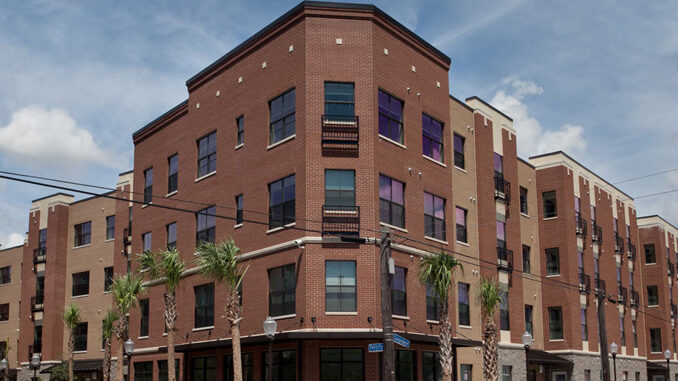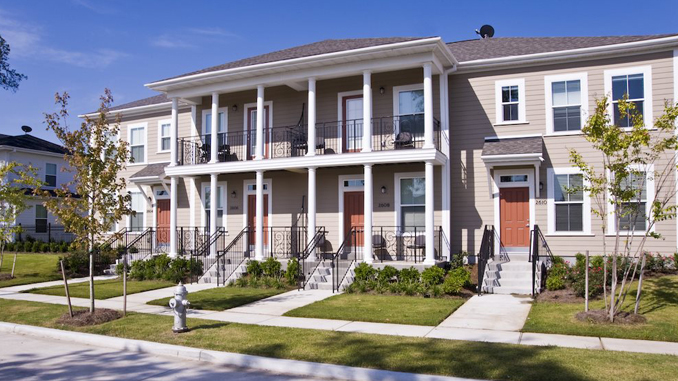
Andreanecia Morris Executive Director HousingNOLA
It has been apparent for quite some time that New Orleans is in trouble. Like almost every major city in the country, struggles with an Affordable Housing Crisis, but New Orleans’ crisis is different. Instead of newcomers pouring in and taking up every available space, sky high prices abound with thousands of empty occupiable homes and vacant land for development available in every corner of the city. The unsustainable cost of housing drives some to move to neighboring communities with cheaper rates, but many are forced out by eviction or foreclosure.
Despite having a comprehensive strategy that would end the city’s housing crisis, leaders have ignored the needs of citizens and focused on investment strategies that prize development for the sake of development. Despite the connection to New Orleans’ culture, Voodoo Economics simply doesn’t work. We must intentionally address the long-standing biases around the concept of affordable housing to break this cycle. Affordable housing evokes thoughts of programs like Section 8, tax credits and permanent supportive housing, but that’s not the only kind of affordable housing we need to create. We need policies that lower utility bills, increase wages and ensure equitable transportation. New Orleans’ economy continues to be dominated by low-wage jobs. During the Pandemic, the Data Center reported that 62% of “essential” retail workers in New Orleans make less than $30,000 per year. An overwhelming 93% of New Orleans’ restaurant workers earn less than $15 per hour. The Pandemic hit the lowest-paid workers – in New Orleans’ hospitality and service industries – the hardest, with substantial job losses for workers in retail, food service, accommodations, and arts and entertainment, many of which have not been fully recovered.
 New Orleans also needs more capital from diverse sources to invest in creating new housing opportunities. When the issue of affordable housing arises, we often look to government to solve such a major problem. The HousingNOLA 10 Year Strategy and Implementation Plan recognized that both public and private dollars are necessary to solve New Orleans’ Housing Crisis. We must educate our financial institutions about the variety of investment opportunities needed. There are large funding gaps left that will have to be filled by the private sector through traditional and unconventional means. We also need our leaders to understand the economic impact, so we speak with one voice as we pursue resources that provide an equitable economic boon for the City of New Orleans. If all New Orleanians paid what they could afford on housing, the people of New Orleans would have an extra $440 million annually to invest in the local economy—$13,208,400,000.00 available in the New Orleans economy over the next 30 years.
New Orleans also needs more capital from diverse sources to invest in creating new housing opportunities. When the issue of affordable housing arises, we often look to government to solve such a major problem. The HousingNOLA 10 Year Strategy and Implementation Plan recognized that both public and private dollars are necessary to solve New Orleans’ Housing Crisis. We must educate our financial institutions about the variety of investment opportunities needed. There are large funding gaps left that will have to be filled by the private sector through traditional and unconventional means. We also need our leaders to understand the economic impact, so we speak with one voice as we pursue resources that provide an equitable economic boon for the City of New Orleans. If all New Orleanians paid what they could afford on housing, the people of New Orleans would have an extra $440 million annually to invest in the local economy—$13,208,400,000.00 available in the New Orleans economy over the next 30 years.
Ending housing insecurity will require an approach that is innovative, comprehensive, and sustainable. No one community can do this alone. We need to harness the efforts of the private sector, government, and philanthropy to create robust and sustainable investment and development strategies that produce significant community impact. Over the past 16 years, billions have been invested to rebuild New Orleans’ housing market. This investment was catalyzed initially by philanthropy and volunteer labor but is anchored by billions in insurance proceeds, private financing, and federal grants. Using today’s construction costs that investment totals approximately $50 billion. The Housing for All Action Plan builds on the revolutionary work HousingNOLA has done for the past seven years and seeks to lay claim to the historic investment opportunities. This must be combined with an accountability and citizen engagement strategy that these funds do not follow previous patterns and don’t bring stability to the people of New Orleans. The Housing for All Action Plan strives to guarantee housing and ensure that every neighborhood achieves Golden Pearl status—creating an equitable, affordable, and strong city.
To truly address these four issues in a holistic manner will require a generational investment. Our cost estimate, which is detailed further in the full report, estimates that the total cost of remedying these issues will be approximately $37 billion. Yet a generational investment is what is required to establish a sustainable future for our community, and it will bring significant returns. $37 billion in required investment to reach these benefits may seem like a staggering number. However, reaching this number is eminently possible over time with the help of public and private partners. Some immediate investment opportunities include:
● Funding from the March 2021 American Rescue Plan Act (ARPA) to provide rental assistance, emergency housing vouchers, and supportive services. New Orleans is slated to receive $377 million in total, of which half has already been provided and half will be provided in 2022.
● Funding from the November 2021 Infrastructure Investment and Jobs Act to upgrade power grids and focus on resilient investments to mitigate climate change. This funding can assist with deploying weatherization, solar, and battery investments to households in New Orleans.
● A renewed community development millage from the City of New Orleans with a clear programmatic emphasis on items enumerated in this plan. The renewal of the Neighborhood Housing Improvement Fund failed by a 2% margin in December 2021. A renewed millage should increase in total annual proceeds and should be accompanied by a clear program to convince the voters that increased annual dollars invested in housing will be spent strategically and will improve lives for everyone in New Orleans.
● FEMA funding and private insurance funding provided for household recovery from Hurricanes Ida and Zeta.
Creating a just, equitable, and resilient housing landscape in New Orleans will therefore come at a significant cost — but will offer incredible benefits to the people of New Orleans and to our economy in return. By making the investments described in this section, New Orleans could:
● Eliminate energy-related cost burdens for all households.
● Eliminate cost burden for all households earning less than $35,000 per year.
● Create over 44,000 new resilient, affordable homes to bring population back to New Orleans, with a particular focus on New Orleanians who have been pushed out of the city by rising prices or disasters.
● Put over 3,000 vacant properties back on the tax rolls.
● Provide supportive services to help put homeless families with children and homeless adults back in homes.
● Preserve over 13,000 expiring affordable housing units.
● Generate over $13 billion in increased spending in New Orleans over the next 30 years; this factors in only direct household spending, and additional spending and returns will come from direct investments in development and construction.
There is also a need for comprehensive reform that also ensures that entities like the Louisiana Housing Corporation, Louisiana Bond Commission and Louisiana Tax Commission can enforce outcome-based policies to help preserve and create more affordable housing. State legislators should also work with community members, advocates, policy makers and the insurance industry to design comprehensive reform initiatives that will afford all Louisianians the opportunity to purchase and maintain affordable insurance policies that allow people to recover equitably.
Geographically, New Orleans is in the path of literal and figurative storms– we are constantly recovering from disaster and yet never seem to reach full recovery before the next crisis hits. Resources pour in but are all too often distributed to the people and businesses who need them least. This pattern of behavior has left us with a weakened infrastructure and little capacity to become resilient. Instead, the people of New Orleans exist in a forced reality of living with less, simply because state and local governments refuse to center its recovery around the needs of people.
Recommended For You.



Be the first to comment